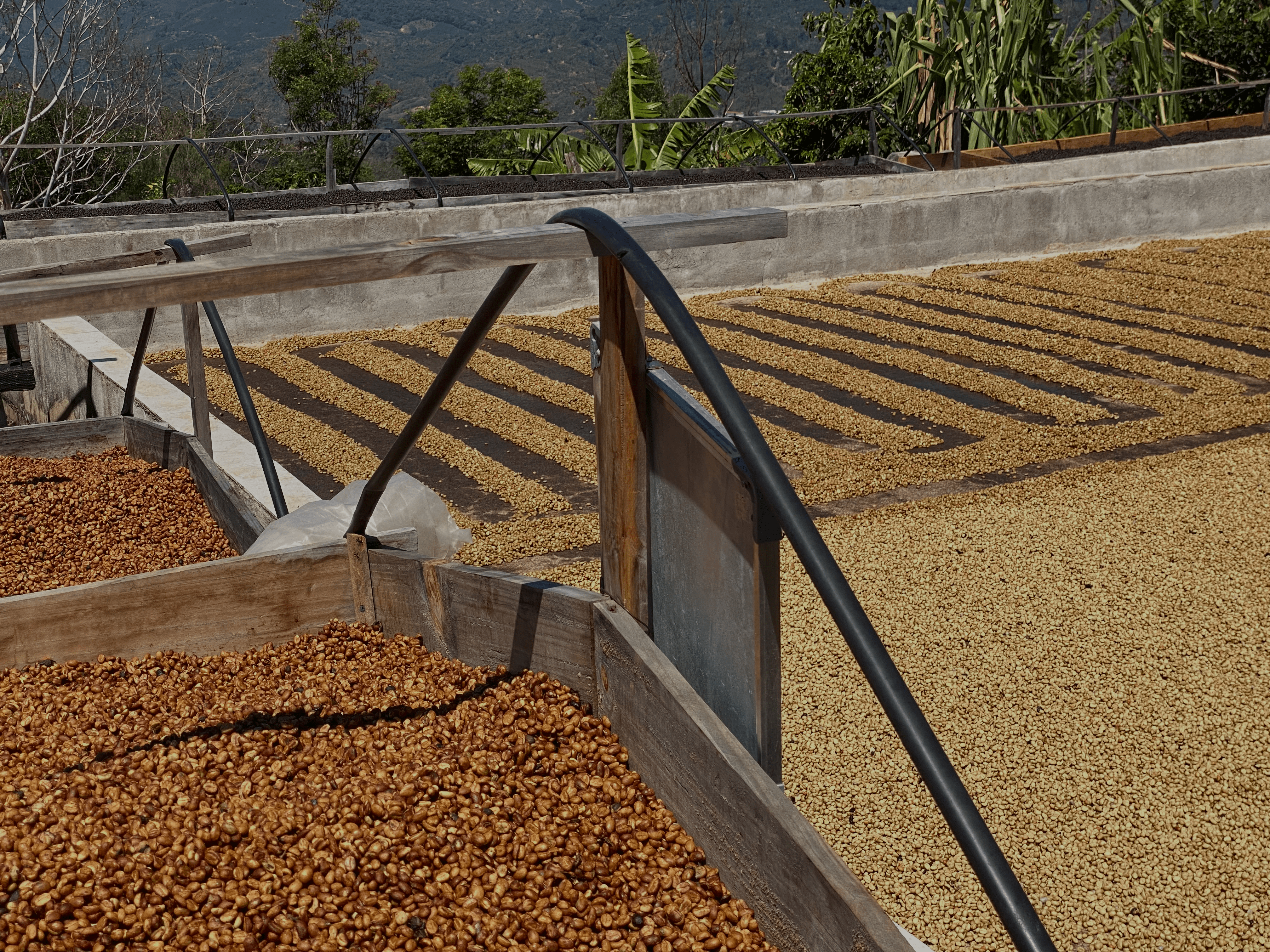
6 Refreshing Reasons to Love Costa Rican Coffee
Costa Rican coffee is renowned for its premium quality, flavor profile, and unique characteristics.
If you’re anything of a coffee connoisseur, you probably already know why Costa Rican coffee is held in such high regard among coffee drinkers around the world. Costa Rican coffee easily stands out among its contemporaries when it comes to coffee that delights and invigorates the human spirit, whether in its whole bean form or as ground coffee. From its rich aroma and distinct flavor profile to its environmentally conscious cultivating practices to its high-altitude volcanically enriched soil, there are numerous reasons why people love this delightful brew. With over 244,000 acres devoted just to coffee plantations, Costa Rica’s diverse microclimates and terroir yield over 1.3 million bags of green coffee beans every year.
But why exactly is Costa Rican coffee good? What is it that makes it so different from the rest? And is it better than the regular coffee you find in the market? Or is all the hype simply a product of hearsay?
Here, we will provide a definitive answer to these questions with facts and suggest six refreshing reasons you should love Costa Rican coffee.
Let’s start by addressing the elephant in the room!
Is Costa Rican Coffee Good?
Costa Rican coffee is renowned around the globe for its premium quality, flavor profile, and unique characteristics. Most of the coffee from the country is cultivated and grown in the Central Valley of Costa Rica. This region is nestled between the Cordillera Central and the Cordillera de Talamanca mountains. The surrounding mountains and volcanoes, combined with the high altitude and mineral-rich soil, create the ideal conditions for coffee cultivation.
This sets Costa Rican coffee apart from coffee sourced from any other location. Costa Rica’s unique geographical features, climate, and coffee cultivation practices create the perfect conditions to create a rich, clean, aromatic, and balanced cup of coffee. But that’s not all!
Here are six other reasons why coffee from this nation is considered by many to be the best.
1. Grown Under Ideal Conditions
Costa Rica has a unique constellation of environmental factors that make it truly ideal for growing incredible coffee.The soil is enriched by volcanic ash from the surrounding geothermal activity, creating the perfect environment for plant oxygenation. Similarly, the high altitude of the farms in mountainous areas, combined with plenty of rainfall throughout the year, helps grow the highest quality Arabica coffee beans.
It is also worth noting that throughout the year, Costa Rica’s temperature only fluctuates around 10 degrees between 17 and 28 °C (63 to 80 °F), and the nation experiences average rainfall between 2000–3000 millimeters. Top that off with the fact that over 80% of the most popular coffee-growing areas are located over 800 meters above sea level. This is because growing coffee at higher altitudes provides numerous advantages.
First, the cooler temperatures at higher elevations slow down the maturation process of coffee cherries, allowing them to develop more complex flavors and aromas.
Second, the thinner air and reduced atmospheric pressure at higher altitudes cause the coffee plants to grow more slowly, resulting in denser beans with a higher concentration of sugars. This contributes to a richer flavor profile in the final cup of coffee.
Last, the increased altitude leads to greater acidity levels in the coffee, adding brightness and liveliness to the overall taste experience.
So, it is no wonder that coffee grown in this nation, benefiting from the advantageous combination of high altitude and favorable climatic conditions, is known for producing coffee with exceptional quality, captivating aroma, and delightful flavor.
2. Handpicked with Care by Professionals
In the rich coffee-growing history of Costa Rica, dating back to the 1700s, the passion for cultivating exceptional beans runs deep. And here’s the secret: Costa Ricans believe in patience and precision. They let every single bean reach its full maturity, ensuring absolute perfection. Skilled farmers who have dedicated their lives to the craft handpick only the finest, fully mature beans. They understand the importance of honoring the process and letting nature work its magic. This meticulous approach guarantees that only the ripest beans are chosen for the next processing stage. It’s a testament to Costa Rica’s unwavering commitment to producing extraordinary coffee.
3. Unique and Distinct Flavor Profiles
Costa Rica is a coffee-lover’s paradise, with not just one or two but a whopping eight distinct regions that produce their own unique brews. Each region boasts its own microclimate and humidity levels, resulting in various flavors, aromas, and characteristics.
Take Tarrazú, for instance. This renowned coffee-growing region is famous for its beans’ bold aroma and tangy taste, which will awaken your senses. Or how about Valle Occidental? You’ll find a cornucopia of fruity flavors like orange, peach, vanilla, and honey dancing in each sip.
But the coffee adventure doesn’t stop there. Guanacaste offers a smooth-bodied delight with gentle acidity and subtle hints of saltiness and bitterness. And let’s not forget Orosí, Turrialba, and Tres Ríos, each with their own unique features that make them stand out from the rest. With so many choices to pick from, it’s time to find your ultimate favorite cup of Costa Rican coffee!
4. Environmentally Friendly
Costa Rica is known for its innovative, sustainable coffee processing practices that are environmentally conscious. This is in part because of the strict laws that ensure the handling of coffee produces nominal waste while simultaneously encouraging the creative use of waste materials. For example, all water waste is treated with natural bacteria to make it more tolerable for the nearby streams and rivers where it is disposed of. Organic waste, like wood clippings from pruned coffee plants, is fuel for mechanical dryers. Similarly, the peels of the coffee cherries are composted and used as fertilizer for the next batch of coffee plants. All waste from the processes is expertly disposed of to conserve the environment.
5. Support for the Local Communities
When you decide to purchase Costa Rican coffee, you’re not just treating yourself to the finest coffee in the world but also supporting the local communities, farmers, and the economy. Many families have been involved in coffee making for generations, passing down their knowledge and expertise. Purchasing Costa Rican coffee means that you’re directly contributing to their well-being.
The coffee industry also plays a vital role in the nation’s economy. As one of Costa Rica’s top agricultural exports, coffee cultivation generates significant revenue and provides employment opportunities to a considerable portion of the population.
6. Supports Tourism and Education
Many Costa Rican coffee farms have opened their doors to tourists and visitors, offering educational tours that provide insight into the coffee cultivating processes. These tours provide a hands-on opportunity for tourists and coffee enthusiasts to learn more about coffee production. These tours also contribute to the local economy by promoting agro-tourism.
Conclusion
While there are countless types of coffee for you to choose from, Costa Rican coffee stands out as a premium choice. Rich in flavor and tradition, every cup is a celebration. From its unique and distinctive taste to its environmentally friendly cultivation practices, the next time you enjoy a warm cup of Costa Rican coffee, remember that you’re not only savoring a refreshing beverage—you’re sipping a part of history and supporting local communities who put their heart and soul into what they do.
Are you a fan of Costa Rican coffee? Purchase here!
Keep us in the loop on how you feel about Costa Rican coffee! Cheers to you for diving deep into the world of coffee with us!
U3 Coffee exists to create the most meaningful coffee experience for millions of mindful, motivated humans like you. Let’s learn, empower, and celebrate the journey from bean to cup. Because here, we’re United by Coffee.
Related posts
- Apr 2025 Elevate your coffee-based cocktails! Discover new takes on the espresso martini, Irish coffee, & more classic coffee drinks.
- Feb 2025 Discover the top coffee trends for 2025, from cold coffee innovations to mindful coffee drinking. Explore the latest and future coffee trends in the coffee industry.


